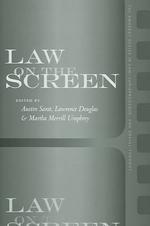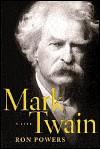This Essay examines what the Harry Potter series (and particularly the most recent book, The Half-Blood Prince) tells us about government and bureaucracy. There are two short answers. The first is that Rowling presents a government (The Ministry of Magic) that is 100% bureaucracy. There is no discernable executive or legislative branch, and no elections. There is a modified judicial function, but it appears to be completely dominated by the bureaucracy, and certainly does not serve as an independent check on governmental excess. Second, government is controlled by and for the benefit of the self-interested bureaucrat. The most cold-blooded public choice theorist could not present a bleaker portrait of a government captured by special interests and motivated solely by a desire to increase bureaucratic power and influence. Consider this partial list of government activities: a) torturing children for lying; b) utilizing a prison designed and staffed specifically to suck all life and hope out of the inmates; c) placing citizens in that prison without a hearing; d) allows the death penalty without a trial; e) allowing the powerful, rich or famous to control policy and practice; f) selective prosecution (the powerful go unpunished and the unpopular face trumped-up charges); g) conducting criminal trials without independent defense counsel; h) using truth serum to force confessions; i) maintaining constant surveillance over all citizens; j) allowing no elections whatsoever and no democratic lawmaking process; k) controlling the press. This partial list of activities brings home just how bleak Rowling's portrait of government is.The critique is even more devastating because the governmental actors and actions in the book look and feel so authentic and familiar. Cornelius Fudge, the original Minister of Magic, perfectly fits our notion of a bumbling politician just trying to hang onto his job. Delores Umbridge is the classic small-minded bureaucrat who only cares about rules, discipline, and her own power. Rufus Scrimgeour is a George Bush-like war leader, inspiring confidence through his steely resolve. The Ministry itself is made up of various sub-ministries with goofy names (e.g., The Goblin Liaison Office or the Ludicrous Patents Office) enforcing silly sounding regulations (e.g., The Decree for the Treatment of Non-Wizard Part-Humans or The Decree for the Reasonable Restriction of Underage Sorcery). These descriptions of government jibe with our own sarcastic views of bureaucracy and bureaucrats: bureaucrats tend to be amusing characters that propagate and enforce laws of limited utility with unwieldy names. When you combine the light-hearted satire with the above list of government activities, however, Rowling's critique of government becomes substantially darker and more powerful.
Furthermore, Rowling eliminates many of the progressive defenses of bureaucracy. The most obvious omission is the elimination of the democratic defense. The first line of attack against public choice theory is always that bureaucrats must answer to elected officials, who must in turn answer to the voters. Rowling eliminates this defense by presenting a wholly unelected government.
A second line of defense is the public-minded bureaucrat. Some theorists argue that the public choice critique ignores what government officials are really like. They are not greedy, self-interested budget-maximizers. Instead, they are decent and publicly oriented. Rowling parries this defense by her presentation of successful bureaucrats (who clearly fit the public choice model) and unsuccessful bureaucrats. Harry's best friend's Dad, Arthur Weasley is a well-meaning government employee. He is described as stuck in a dead end job, in the least respected part of the government, in the worst office in the building. In Rowling's world governmental virtue is disrespected and punished.
Lastly, Rowling even eliminates the free press as a check on government power. The wizarding newspaper, The Daily Prophet, is depicted as a puppet to the whims of Ministry of Magic. I end the piece with some speculation about how Rowling came to her bleak vision of government, and the greater societal effects it might have. Speculating about the effects of Rowling's portrait of government is obviously dangerous, but it seems likely that we will see a continuing uptick in distrust of government and libertarianism as the Harry Potter generation reaches adulthood.
Barton's is the latest in a series of pieces exploring law in in Rowling's novels. Other entries using Harry as inspiration include Julie D. Cromer's "Harry Potter and the Three Second Crime: Are We Vanishing the De Minimus Doctrine From Copyright Law?" in the New Mexico Law Review and Aaron Schwabach's "Harry Potter and the Unforgiveable Curses: Norm Formation, Inconsistency, and the Rule of Law in the Wizarding World" in the Roger Williams Law Review. There are also Susan Hall, Harry Potter and the Rule of Law: The Central Weakness of Legal Concepts in the Wizard World, in Reading Harry Potter: Critical Essays, edited by Giselle Liza Anatol, and published by Praeger (Westport CT, 2003) at pp. 147-162, and William P. MacNeil, `Kidlit’ as `Lawandlit’: Harry Potter and the Scales of Justice, 14(3) Law and Literature 545-564 (2002).
[Cross-posted with variations at The Seamless Web].








